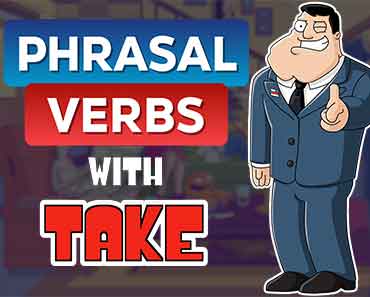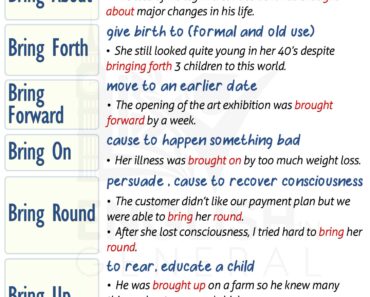Stop Saying Very
We use the word “very” to add emphasis to an adjective or adverb. People tend to use “very” over and over as it’s easy. However, there are always better alternatives to avoid using “very” and those words will help you sound more like a native speaker. Moreover, using very repeatedly in writing makes you seem dull and repetitive and lead to lower your score in exams such as IELTS and TOFEL. In this lesson, you’re going to learn how to stop saying very and enrich your English vocabulary.
Stop Saying Very!
Here is a list of 100 words to use instead of very to sound better in English;
100 Words to Avoid Using Very with Examples
- Very accurate = Exact
– They couldn’t find the exact cause of the accident. - Very afraid = Terrified
– She’s terrified of the dark. - Very angry = Furious
– My father was furious when I crashed his car. - Very bad = Awful
– The weather was awful yesterday. - Very beautiful = Gorgeous
– You look gorgeous as usual. - Very big = Massive
– We can’t afford such a massive house. - Very boring = Dull
– The book was so dull that I couldn’t finish it. - Very busy = Swamped
– I’ve been swamped with work recently. - Very calm = Serene
– She always smiles with that serene smile of her. - Very careful = Cautious
– She was cautious about what she ate. - Very cheap = Stingy
– He’s too stingy to take a taxi. - Very clean = Spotless
– She wanted me to keep the house spotless. - Very clear = Obvious
– It was quite obvious that he was guilty. - Very cold = Freezing
– Put on your jacket. It’s freezing outside. - Very colorful = Vibrant
– Hong Kong is a vibrant, fascinating city. - Very creative = Innovative
– He was a highly innovative artist in his time. - Very crowded = Bustling
– The pavements are bustling with people. - Very cute = Adorable
– Have you seen their new baby? She’s adorable. - Very dangerous = Perilous
– It’s perilous to drive fast when the roads are wet. - Very different = Disparate
– The four expirements gave quite disparate results. - Very difficult = Arduous
– It was a long and arduous journey. - Very dirty = Filthy
– I will have my car washed because it’s filthy. - Very dry = Arid
– The desert is so arid that nothing can grow there. - Very dull = Tedious
– His talents were wasted in his tedious job. - Very easy = Effortless
– She made playing the piano look effortless. - Very empty = Desolate
– The little mining town was desolate and ugly. - Very evil = Wicked
– It’s wicked to punish him for something he didn’t do. - Very excited = Thrilled
– Matthew was thrilled about becoming a father. - Very exciting = Exhilarating
– Riding roller coasters is an exhilarating experience. - Very expensive = Costly
– It would be too costly to repair your car. - Very fancy = Lavish
– He took me to a lavish restaurant for our anniversary. - Very fast = Quick
– She’s used to making quick decisions in a crises. - Very fat = Obese
– It’s very difficult for obese people to stop overeating. - Very friendly = Amiable
– He was such an amiable and decent man. - Very frightening = Terrifying
– It was the most terrifying experience of my life. - Very funny = Hilarious
– We laughed nonstop while watching the hilarious sitcom. - Very glad = Overjoyed
– Lisa was overjoyed when her boyfriend asked to marry her. - Very good = Excellent
– It’s quite an old car, but in excellent condition. - Very great = Terrific
– Everybody was having a terrific time at the party. - Very happy = Ecstatic
– The staff are ecstatic about the latest pay increase. - Very hard = Difficult
– It’s difficult to find a job during the pandemic. - Very hard-to-find = Rare
– My uncle’s interested in collecting rare stamps. - Very heavy = Leaden
– His eyelids were leaden with sleep. - Very hot = Sweltering
– It’s sweltering in here. Do you mind if I turn on the air conditioner? - Very huge = Colossal
– They asked a colossal amount of money for that house. - Very hungry = Starving
– I will get something to eat, I’m starving. - Very large = Huge
– We’re in competition with some huge companies. - Very lazy = Indolent
– He’s such an indolent man who does nothing but sleep. - Very little = Tiny
– The last time I saw her, she was just a tiny baby. - Very lively = Animated
– As he talked about her, his face became animated. - Very long = Extensive
– The flood caused extensive damage to the village. - Very loose = Slack
– Keep the rope slack until I tell you to pull it. - Very mean = Cruel
– Her treatment of the animal was cruel. - Very necessary = Essential
– Languages are an essential part of the school curriculum. - Very nervous = Apprehensive
– He was apprehensive about how to make his living. - Very nice = Kind
– It was kind of you to remember my birthday. - Very noisy = Deafening
– When he finished speaking, the applause was deafening. - Very often = Frequently
– She was frequently late for school. - Very old = Ancient
– Your computer is ancient. I think you should buy a new one. - Very open = Transparent
– She dressed a transparent silk blouse yesterday. - Very pale = Ashen
– Her ashen face showed how shocked she was. - Very poor = Destitute
– The floods left many people destitute. - Very pretty = Beautiful
– She’s the most beautiful girl I’ve ever seen. - Very quick = Rapid
– There’s a rapid growth in the use of the internet. - Very quiet = Hushed
– We discussed the situation in hushed voices. - Very rainy = Pouring
– It hasn’t stopped pouring for hours. - Very rich = Wealthy
– Lisa comes from a wealthy family. - Very sad = Sorrowful
– She had a sorrowful look on her face. - Very scary = Chilling
– They’re nervous about the chilling effect of inflation. - Very serious = Grave
– Many species of animals are in grave danger of dying out. - Very sharp = Keen
– You should be careful with that keen knife. - Very shiny = Gleaming
– My brother polished his new car until it was gleaming. - Very short = Brief
– He had only a brief sleep last night. - Very shy = Timid
– She was always timid with strangers. - Very simple = Basic
– He works to provide for his family’s basic needs. - Very skinny= Skeletal
– She stretched out a skeletal hand. - Very slow = Sluggish
– I woke up feeling tired and sluggish. - Very small = Petite
– Dress sizes range from petite to extra large. - Very smart = Intelligent
– He’s an intelligent and well-educated man. - Very smooth = Sleek
– She tried on a sleek little black dress. - Very soft = Downy
– He reached out and stroked the cat’s downy fur. - Very special = Exceptional
– The ability to motivate people is exceptional. - Very sure = Certain
– Richard was certain about his ability to do the job. - Very stupid = Idiotic
– I’m not going to make such idiotic mistakes again. - Very sweet = Thoughtful
– It was really thoughtful of you to help me. - Very talented = Gifted
– He’s one of the most gifted football players of all time. - Very tasty = Delicious
– Could you give me the recipe for that delicious cake? - Very thirsty = Parched
– Can I have some water? I’m absolutely parched. - Very tired = Exhausted
– I’m exhausted after walking for hours. - Very ugly = Hideous
– I wouldn’t buy such a hideous dress. - Very unhappy = Miserable
– Simon had a miserable childhood. - Very upset = Distraught
– They were terribly distraught about the accident. - Very valuable = Precious
– Health is more precious than anything else. - Very weak = Frail
– He’s too frail to walk without a stick. - Very wet = Soaked
– My clothes were soaked with sweat. - Very wide = Expansive
– The expansive garden spreads through the river valley. - Very willing = Eager
– She was eager to learn how to drive. - Very windy = Blustery
– It was a cold and blustery day. - Very wise = Sage
– We were grateful for his sage advice. - Very worried = Distressed
– He was distressed by the news of the accident.







very well explaned thankss